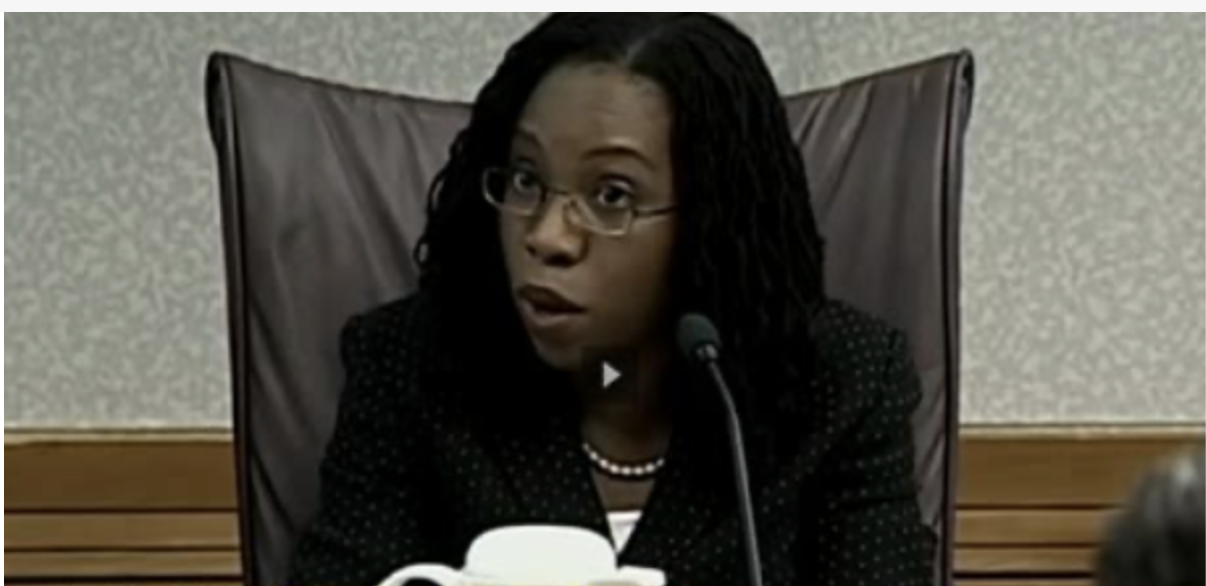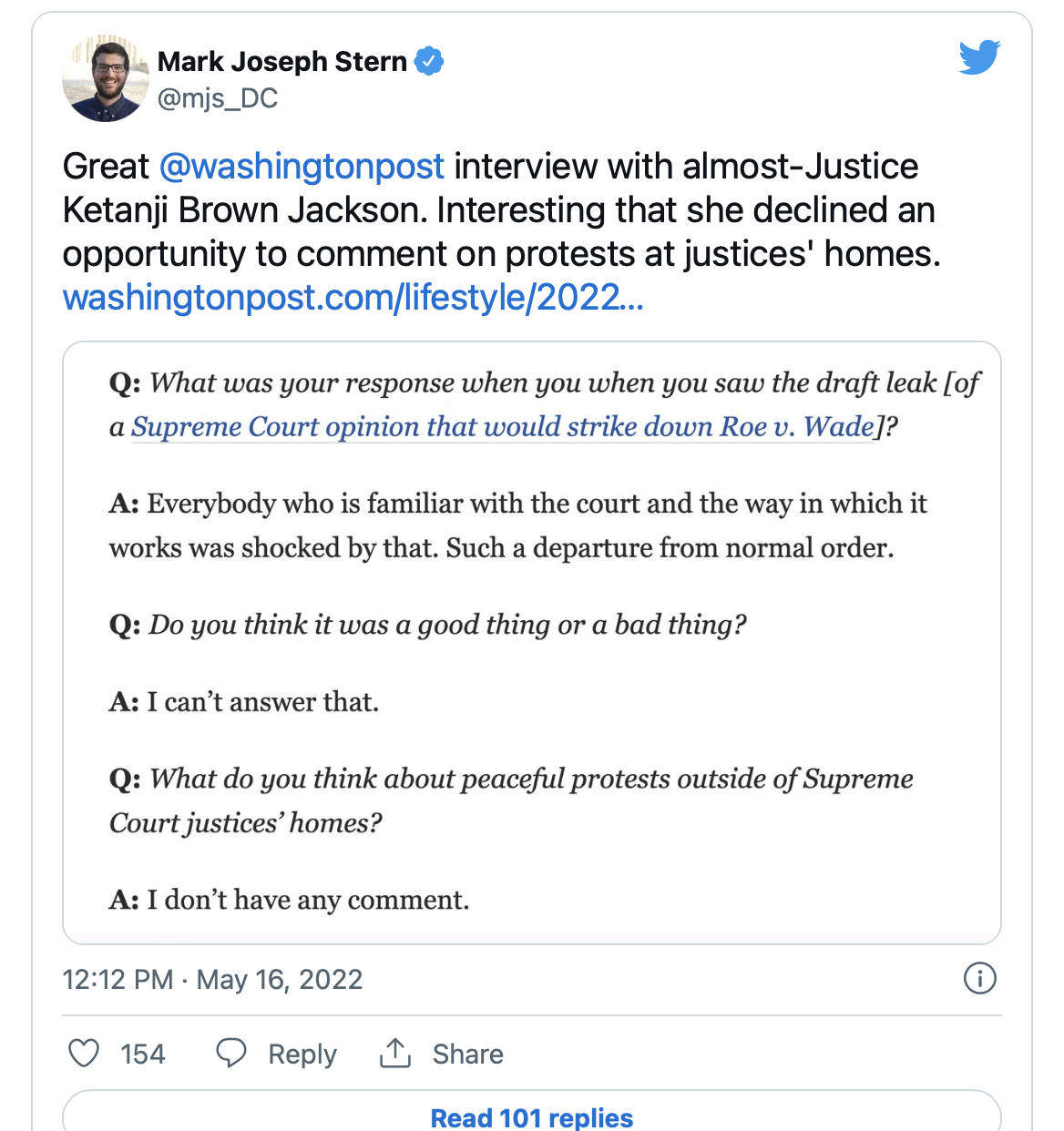The future of the Supreme Court is displayed by its soon-to-be newest member
/Proving perfectly why we must rid the nation of Democrats and RINOs
Andrew McCarthy
It would have been understandable if Judge Jackson had said she’d agreed to speak to the Post about the jurists who had influenced and inspired her (the main subject of the interview), but that she would not discuss the Dobbs leak at all. Had she done that, she could not be fairly accused of vaguely endorsing the leak and the demonstrations at justices’ homes.
But that is not what she did. She first expressed shock over the leak, so it was clearly a topic she was willing to weigh in on. But then she refused to say whether she thought the leak — which the chief justice and Justice Clarence Thomas (the senior justice on the Court) have full-throatedly condemned — was a good or bad thing. And then she could not bring herself to say that people should not protest at the homes of justices — something even Judiciary chairman Dick Durbin, one of the Senate’s most partisan and influential Democrats (and the one who steered Jackson through her confirmation hearing), has admirably described as “reprehensible.”
Justice Thomas has opined in recent public statements that the leak has changed the Court “fundamentally” and irretrievably, betraying trust. In contrasting the current Supreme Court with how it was at the turn of the century, he ruefully observed, “This is not the court of that era. . . . We actually trusted each other. We may have been a dysfunctional family, but we were a family.”
Not anymore.



